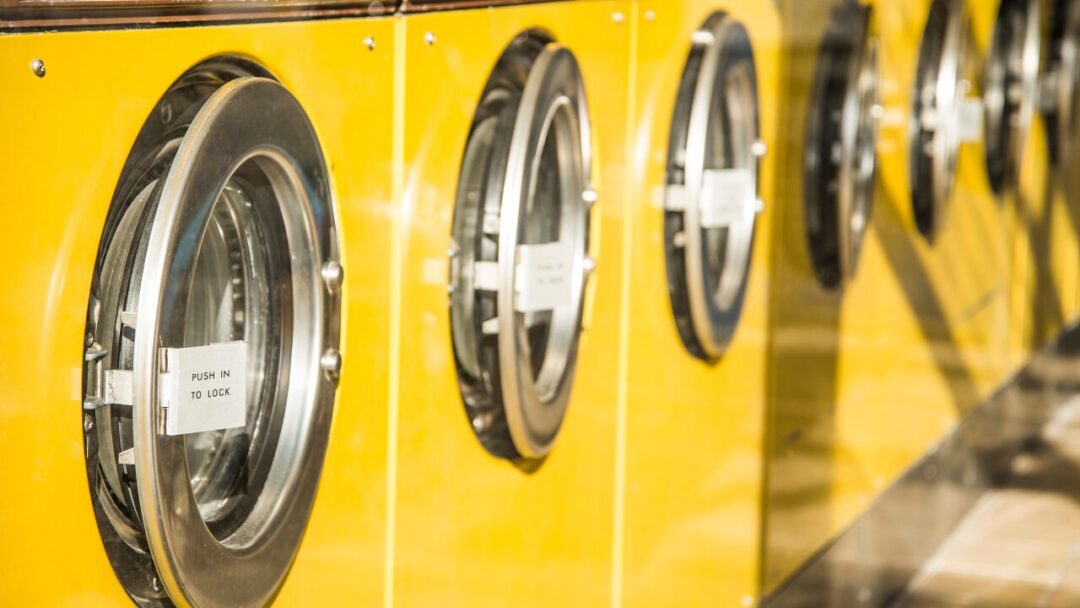Language:
How to Start a Laundromat Business with No Money

Starting a laundromat can be a lucrative venture, but in most cases, a significant investment is required to get the business up and running.
For those who don’t have the necessary funds to start a laundromat business, it’s still possible to get started with little or no money.
With the right approach and a bit of creativity, you can launch a successful laundromat business even if you have limited financial resources.
In this article, we’ll explore some strategies for starting a laundromat business and discuss some essential considerations as you embark on this journey.
Is a Laundromat Business Profitable?
A laundromat can be profitable because it provides an important service that people need regularly.
Even without a lot of capital, you can open a laundromat by renting equipment, providing services to local businesses, or using a crowdfunding platform like Kickstarter to raise funds.
Coupled with a solid business plan, commitment, and smart management, a laundromat can be a worthwhile investment.
Types of Laundromat Services
When you open a laundromat, you should consider what kind of services you want to offer to your customers.
The range of services can vary from a simple self-service laundromat to full-service options. The type of service you choose will depend on the needs of your target audience, your budget, and the resources you have available.
Below you’ll find some of the common types of laundromats and how they work.
Self-service Laundromat:
- Customers use the equipment to wash and dry their clothes themselves
- Customers have the flexibility to do their laundry at their own convenience
- Offers a clean and well-maintained facility with multiple washers and dryers that typically require regular maintenance
Wash-and-fold Services:
- Customers drop off their dirty laundry, and you wash and press it for them
- Offers customers the convenience of not having to do their own laundry
- More expensive than a self-service laundromat
- Requires enough staff to handle the volume of laundry coming in
Laundry Pick-up and Delivery Services:
- Customers schedule a pickup time for their laundry, and you pick it up from their home or office
- You wash, dry, and fold the laundry at your laundromat
- You deliver the clean laundry back to the customer
- Offers the highest level of convenience for customers but requires significant resources in terms of transportation, staff, and equipment
Pros of Laundromat Services

Many benefits exist for starting a laundry business, including:
1. High demand: Laundry is an essential service, making the business relatively recession-proof.
2. Passive income potential: Laundromats can generate passive income, as customers will come in and use the equipment without much need for staff involvement.
3. Flexible working hours: Laundromats can be open 24/7, allowing for flexible working hours and reducing staffing costs.
4. Low overhead costs: Laundromats don’t require much in the way of inventory or supplies, and energy-efficient machines can help keep utility costs low.
5. Multiple revenue streams: In addition to self-service, laundromats can offer additional revenue streams, such as wash-and-fold services or vending machines, which help increase profits.
6. Scalability: With the right business model, laundromats can be easily scaled up to multiple locations, allowing for more significant potential earnings.
Overall, starting a laundromat business can offer several advantages, from high demand to multiple revenue streams, making it a potentially lucrative venture.
Cons of Laundromat Services
Although a laundromat business has its upsides, you should consider the negative aspects before you begin.
1. High initial investment: Starting a laundromat can require a significant initial investment in terms of equipment, rent, and utility costs.
2. Maintenance costs: Laundromat equipment requires regular maintenance and repairs, which can add up over time.
3. Location-dependent: The success of a laundromat business can be highly dependent on its location, with factors like foot traffic, competition, and demographics playing a significant role.
4. Staffing needs: While self-service laundromats require minimal staffing, other services like wash and fold or laundry pick-up and delivery will require additional staff, which can add to overhead costs.
5. Security concerns: Laundromats can be a target for theft, vandalism, or other criminal activities, possibly requiring the installation of security cameras, alarms, or secure entrances.
6. Regulatory requirements: Laundromat businesses must comply with various regulatory requirements such as environmental regulations, health and safety codes, and zoning ordinances, which can add to the cost and complexity of running the business.
Overall, while the laundromat business offers many benefits, it presents some challenges, such as high initial investment, location dependence, and staffing requirements. Consider these factors before starting a laundromat business to mitigate major losses.
10 Steps to Start a Laundromat Business with No Money
Regardless of the challenges you may face when running a laundromat business, owning a business that has the potential to become lucrative and profitable is rewarding.
Read on to learn about the 10 steps you can take to ensure your laundromat business hits the ground running.
Do Your Research
The first step to starting your laundromat business is to do extensive research on the industry and marketplace of the business.
You can do this by educating yourself about what a high-quality laundromat consists of, nailing down a marketing plan, and learning the ins and outs of creating a business structure.
You don’t want to venture into a business blindfolded — and it will be in your best interest to gain as much insight as possible before launching your business.
Write Your Business Plan
Next, you’ll want to create a business plan that provides a detailed overview of your goals and describes how you’re going to sell your services.
Your plan should include a financial structure that accounts for the expenses of starting your business, such as equipment, supplies, and products.
In addition, your plan should outline your marketing strategy, such as advertising on social media, starting a newsletter, or promoting your services locally.
If you plan to hire multiple employees, creating an efficient management system to stay organized would be beneficial to include in your business plan.
Creating a Business Name
The name of your business is critical to its success because it helps you stand out from other laundromats and can significantly impact your brand image.
When choosing a business name, it’s important to consider the following factors:
- Short, memorable, and easy to spell
- Descriptive of your services
- Reflective of your personality and approach
- Unique and not already in use by another business
By considering these factors, you can create a memorable and distinctive name for your laundromat business that will help you to establish your brand and attract customers.
Pick the Perfect Location
If you intend to start your laundromat business on a budget, the best option is to start small in an area with a high rental community.
Ultimately, the right location can make or break a laundromat business. As you begin to scale your business, you can begin to consider expanding into multiple locations and hiring more employees to help grow your company.
Choose the Right Equipment
Laundromat equipment can be expensive, and it may not be the best option to invest in high-quality equipment if you do not have the capital.
So depending on your budget and what you are willing to invest will determine what kind of equipment you will buy.
Make sure you research carefully and know what you can afford, making sure that it won’t affect the quality of your work.
Here’s a list of essential equipment to purchase when starting a laundromat business.
- Washers and dryers
- Change machines
- Folding tables and chairs
- Laundry carts
- Detergent vending machines
- Maintenance tools
These are just a few of the key pieces of equipment you will need to start a laundromat. Depending on the size and scope of your business, you may need additional equipment and supplies to provide a positive experience for your customers.
Decide on Your Business Structure
Next, you will want to choose a business structure that best suits your needs. The choice of entity type will determine how your business will be run and how you manage your taxes for your finances.
Your choice is important because you want to keep your finances compliant.
Below are different types of business structures and their advantages and disadvantages.
Sole Proprietorship
A sole proprietorship is a form of business in which an individual is the sole owner and operates the business. One of the main advantages of a sole proprietorship is that it is relatively easy to manage and has fewer regulatory requirements compared to other business structures.
A major disadvantage is that the owner is personally liable for all debts, meaning that his or her personal assets are at risk in the event of a lawsuit or debt.
General Partnership
A general partnership is a form of business in which two or more people jointly own and operate the business. While the ease of formation and fewer regulatory requirements can be attractive to individuals who want to start a business quickly, the potential for disagreements between partners and unlimited liability for business debts can have significant drawbacks.
Partners must have a clear agreement in place to minimize the risk of disputes and ensure the success of the partnership.
Limited Partnership
A limited partnership is a type of business that combines the participation of general partners and limited partners. This structure offers the advantage of outside investors providing capital without relinquishing control of the business and limited partners enjoying the security of limited liability.
The potential for disputes between multiple partners and the need for formal agreements and arrangements can make the structure more complex than a sole proprietorship or general partnership.
Limited Liability Company
A Limited Liability Company (LLC) is a hybrid business structure that combines elements of a corporation and a partnership. It provides its owners or members with the limited liability protection of a corporation while offering the tax advantages and flexibility of a partnership.
LLCs offer the benefit of protecting the personal assets of their members and the flexibility to choose how the business is taxed. Forming and operating an LLC can involve more regulations and formalities compared to a sole proprietorship or general partnership. It may be more difficult to transfer ownership of an LLC, and there may be limitations on the number of permitted owners.
Corporation
A corporation is a legal entity separate from its owners, known as shareholders. Corporations offer several advantages, such as protection from liability limitations, the ability to raise capital, and the ease of transferring ownership.
Corporations also have disadvantages such as double taxation of some profits, a more complex and formal organizational structure, and more regulations and compliance requirements. Establishing and managing a corporation can be more expensive and time-consuming compared to other business structures.
You can form a C-Corp over here.
Apply for Business Registration, Licenses, and Permits
Once you’ve chosen a location, secured funding, and purchased equipment, the next step in starting a laundromat business is to register your business with the state or local government.
Laundromat businesses typically must apply for a business license to comply with water and air pollution regulations. The requirements for registering your business will depend on your business structure. Check with your local government for rules and regulations to comply with legal requirements to ensure your laundromat business is operating legally.
Open a Bank Account
Establishing a business account will enable you to separate personal and business finances, simplifying the management of your business’s finances. Research online banking options and interest rates when creating a business bank account to select the account that best suits your requirements.
Also note that a dedicated business account allows you to monitor and keep track of your business finances, establish a credit history and ensure the smooth operation of your business.
Insurance
Having the appropriate insurance policy is vital as it offers financial protection in the event of accidents or damages.
A personalized insurance policy should encompass liability coverage for third-party property damage or bodily injury to provide peace of mind for you and your clients and demonstrate your commitment to operating responsibly and professionally.
Advertise Your Business Online
It’s one thing to have a high-quality service people will love, but without the proper marketing, your business will quickly fall by the wayside.
One of the most effective ways to start marketing on a low budget is to reach out to people you already know. Start with friends and family and offer them a discounted service.
From there, you can begin to build your email list and social media presence and begin to think about investing in paid advertisement.
It’s not difficult to market yourself to your target audience, but it does take commitment, persistence, and a friendly demeanor to build valuable and loyal customers.
In addition, developing a website for your business is an effective way to showcase your services and increase your company’s visibility.
Starting a Laundry Business on a Tight Budget
Starting a laundry business can be an expensive and involved process in the early stages. By carefully planning your success, choosing the right business structure, and proactively marketing yourself, starting a laundry business can prove to be a lucrative and profitable venture.
One way to simplify your life is by using doola’s bookkeeping services. We’ll keep your financial records organized and up-to-date and ensure that all legal paperwork is properly managed.
FAQs
Is it easy to run a laundromat?
Running a laundromat has challenges because of the initial investment required, ongoing maintenance costs, and competition. It can be a profitable and rewarding business if carefully planned and executed.
Is opening a laundromat a good investment?
Depending on the type of laundry business you plan to operate, opening a laundromat business has the potential to be a lucrative venture.
How many employees do you need to run a laundromat?
The number of employees will depend on the business structure of your laundromat. If it is a self-service laundromat, few employees are required in comparison to a large-scale wash-and-fold delivery service.
What makes a successful laundromat?
A successful laundromat consists of many factors such as quality employees and management, adequate initial capital investment, dedicated growth, and entrepreneurial spirit.
Are laundromats a dying business?
Laundromats are likely to stay in high demand as they are a necessity for many people, especially in urban areas with a high population.
How many loads can you do at a laundromat?
The number of loads that can be done at a laundromat depends on the size and number of washing machines available, with some laundromats having up to 100 machines holding up to 65 lbs.
How many machines should a laundromat have?
The number of machines a laundromat business should have depends on how you operate your business and how many employees you have. On average, a laundromat can have anywhere between 40 to 100 machines.






